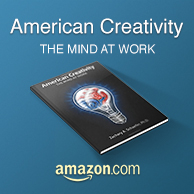The Fallacy of ‘Homo Economicus’
In the realm of Economics, it is assumed that people act rationally and make decisions that are always in one’s best interests. Economists call this “Maximizing Utility,” and traditional economics theory suggests that humans are calm, cool, and collected decision making beings (e.g., homo economicus). In the last 20 years, however, a more nuanced version of economics has hit the scene: Behavioral Economics (BE). In a nutshell, the theory of BE argues that people often behave irrationally. This genre of economic research looks to understand how people actually behave rather than how they should behave; it is interested in what people are thinking when they make judgments and decisions.
Irrational actions occur when we make uninformed decisions for a variety of reasons, such as to improve our social status (reputation), trying to attract a mate (sexual), to appease a fleeting feeling of positive emotion (ego), or any other non-systematic method for making decisions. Traditional economics says that humans calmly weigh all appropriate choices when making a decision, often in the form of a T-Chart (pros and cons). I am sure you can see the ridiculousness of such a claim…if we took the time to weigh every decision in a rational manner we would all be dead before arriving at any answers.
But BE does provide us with interesting answers to how and why humans make decisions. An interesting term from BE research is the idea of an “Anchor,” which refers to the first price we see or hear regarding a product or service. The problem with anchors is that they exhibit capricious consistency. In other words, the initial price of many things may be somewhat subjective but once we see that price it is lucidly established in our minds…for better or worse.
Anchors in Negotiations
When we are negotiating with someone, we rely on anchors for the various offers we make and concessions we provide. These numbers do not just pop into our heads from the abyss but have been absorbed by our subconscious brain through observations and conversations. For instance, I know that I can purchase a high quality flat screen television set for less than $1000 because I shopped around for TVs at several different electronics outlets. Whereas a good friend’s anchor was very different based on her experience of working in the digital signage industry and being privy to wholesale prices. The point is that we all use anchors all the time — even if it is not conscious.
One of the biggest problems during negotiations — especially heated negotiations — is trying to help people articulate why the numbers they are using are meaningful. People just want to throw out “naked numbers” that have no explicit significance attached to them, and the job of an effective mediator is to better understand these numbers. Where did these numbers come from? Why are these particular numbers important to you? Can you help me understand how you arrived at this figure? Questions such as these help ensure that neither party uses naked numbers as well as helps each party better understand where the other is coming from. Although it doesn’t mean that the parties will come to an agreement, it does mean that they will have to not only disagree with the other person’s numbers but also their reasons in support of the numbers. In short, knowing how people form their anchors and helping them articulate that to the other party will make for a more successful negotiation.
By uncovering people’s anchors, mediators can help people attach significant meanings to negotiation offers rather than futilely negotiate using naked numbers!
Questions
- Have you experienced parties who will not move beyond naked numbers, and if so, how do you proceed?
- How do you help people understand that “fair” has multiple meanings?
- Many clients form their anchors based on advice from their attorney, so how can a mediator attribute meaning to numbers (and show that the anchor may be misplaced) while preserving the attorney-client relationship and without disrespecting the attorney?



